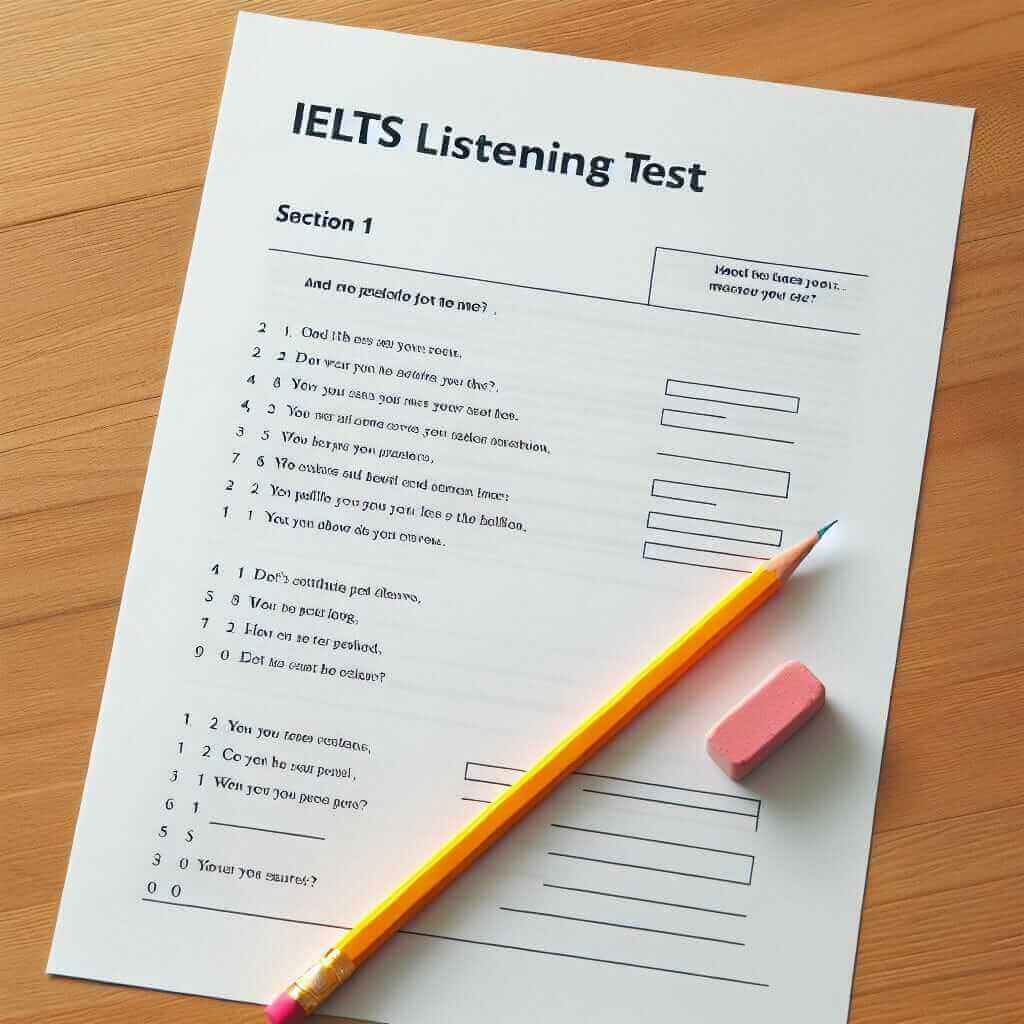The IELTS Listening test can be a challenge, especially Section 1, which often focuses on everyday conversations. This guide provides a detailed approach to help you confidently navigate this section and ace your way to a high score.
Understanding IELTS Listening Section 1
Section 1 typically involves a dialogue between two speakers in a social context. You might hear a conversation about booking a hotel room, inquiring about a course, or planning a trip.
Key Features:
- Scenario: Everyday social situations.
- Speakers: Usually two, with standard accents.
- Information: Personal details, dates, times, places, and numbers.
- Question Types: Multiple choice, note completion, form/table completion, sentence completion.
Illustrative Examples:
Let’s look at some examples to illustrate the nature of Section 1:
Example 1: Hotel Booking
- You might hear: “The double room is £80 per night, and the single room is £60.”
- You might see: “Cost of a single room: ___” (form completion)
Example 2: Course Inquiry
- You might hear: “The course starts on the 15th of July and runs until the end of August.”
- You might see: “Course duration: _____” (note completion)
Example 3: Trip Planning
- You might hear: “We could take the train at 10:30 am or the bus at 11:15 am.”
- You might see: “What time does the bus leave? _____” (sentence completion)

Applying Knowledge to the Test
Here’s how to effectively apply your understanding to the IELTS Listening Section 1:
- Preview Questions: Before the recording starts, skim through the questions to get an idea of the topic and what information to listen for.
- Focus on Keywords: Identify keywords in both the questions and answer choices. This will help you stay focused while listening.
- Note-taking: Develop a system for jotting down important information like names, dates, times, and places. Use abbreviations and symbols to be efficient.
- Anticipate Answers: Try to predict possible answers based on the questions and your understanding of the conversation.
Common Pitfalls to Avoid
- Getting Distracted: The dialogues are only played once, so it’s crucial to stay focused and avoid getting sidetracked by unfamiliar words or accents.
- Misinterpreting Information: Pay attention to details. For example, ’15th’ and ’50th’ can sound similar, so focus on context.
- Overthinking: Don’t spend too much time on a single question. If you miss something, move on and try to catch it on the second listen.
Effective Practice Strategies
- Listen Actively: Practice listening to various English audio materials like podcasts, news reports, and TV shows.
- Focus on Everyday Language: Familiarize yourself with common vocabulary and phrases used in everyday conversations.
- Practice Note-taking: Develop your note-taking skills while listening to practice tests or other audio materials.
- Time Yourself: Get accustomed to the pace of the test by timing yourself while doing practice tests.
Conclusion
Mastering IELTS Listening Section 1 is achievable with the right approach and consistent practice. By understanding the format, practicing actively, and avoiding common pitfalls, you’ll be well-equipped to excel in this section and achieve your desired IELTS score.
Remember, effective listening is a skill that improves over time. Stay persistent, seek opportunities to engage with the English language, and you’ll be well on your way to success!